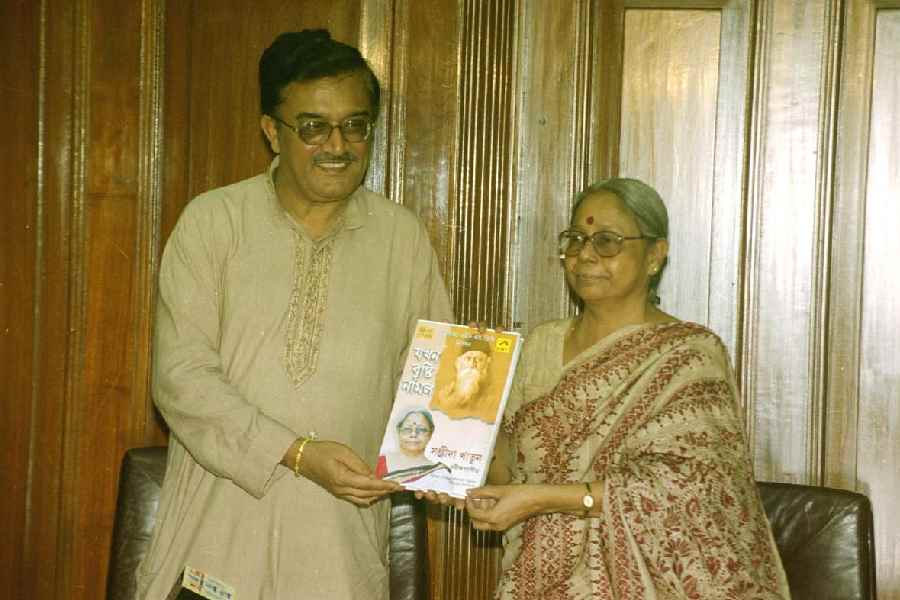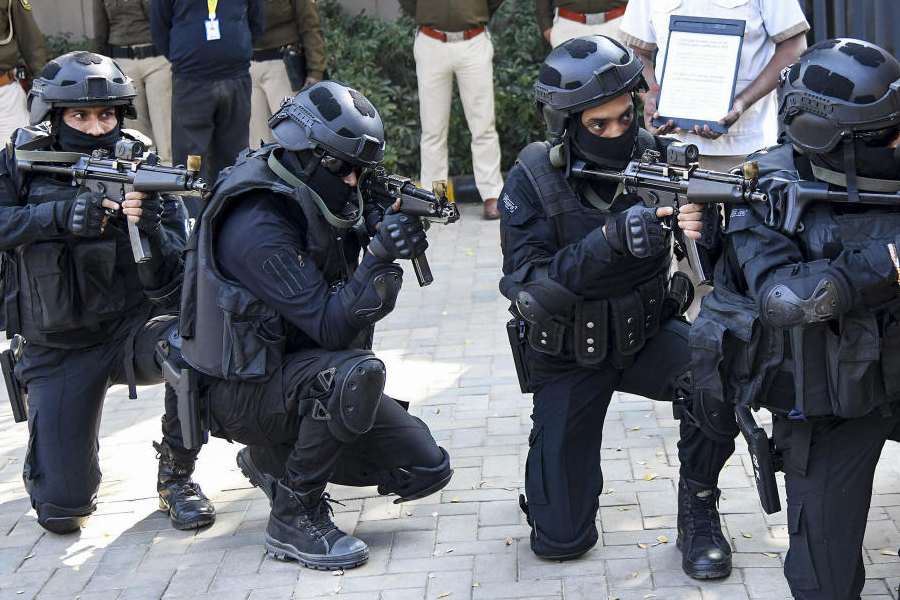Sanjida Khatun, one of the pioneers of the Bengali cultural movement in Bangladesh, who passed away in Dhaka on Tuesday, is fondly remembered by her close circle in Santiniketan as a feisty artiste who championed Rabindranath Tagore's songs and culture and stood her ground against her country’s fundamentalist forces.
She was 92.
"Sanjida-di played a pivotal role in promoting the Bengali cultural movement, particularly Rabindrasangeet and Tagore's cultural values, not only in urban hubs of Bangladesh but also in its rural areas," said Manabendra Mukhopadhyay, head of the Bengali department at Visva-Bharati, Khatun's alma mater.
Khatun passed away at Dhaka Square Hospital. On Wednesday, thousands of people from various walks of life gathered at her renowned institution, Chhayanaut Sanskriti Bhavan in Dhaka's Dhanmondi, to bid her a final farewell. Dhanmondi reverberated with Tagore songs that the gathering sang as a tribute to Khatun's acclaimed renditions.
A revolutionary figure in Bangladesh’s cultural arena, Khatun was a Rabindrasangeet singer, Tagore researcher, author of several books, musicologist and academic. One of the founding members of Chhayanaut set up in the early 1960s, she served it as president till she breathed her last.
She completed her bachelor's degree in Bengali literature from the University of Dhaka in 1955. She then earned her MA in Bengali from Visva-Bharati in 1957. Khatun later obtained her PhD from Visva-Bharati, focusing her research on Rabindrasangeeter Bhavasampad (The thematic wealth of Rabindrasangeet).
She was honoured with India's fourth-highest civilian award, the Padma Shri, in 2021. In 2014, she also received Visva-Bharati's highest accolade, Deshikottama, along with numerous other awards from Bangladesh.
Mukhopadhyay recalled Khatun's role in resisting fundamentalist forces before Bangladesh’s independence in 1971, when under Pakistan's rule, it had a ban on Tagore's songs. During the 1971 war for liberation, Khatun and a few others formed the Bangladesh Mukti Sangrami Shilpi Sangstha. The organisation played a major role in boosting the morale of soldiers through cultural performances.
"Pakistani authorities and fundamentalists failed to deter her from promoting Tagore's ideology in the country. Her demise is a great loss, especially at a time when Bangladesh is seeing a rise in fundamentalist activities," Mukhopadhyay said.
Affectionately known in Santiniketan as Sanjida di, Khatun often visited the university town and stayed at the home of her friend, the late Bengali professor Sutapa Bhattacharya.
"We have a gathering called Bandhusabha (meeting of friends). Sanjida di was an integral part of it. I have never seen such a straightforward and courageous woman," Mukhopadhyay said.
Indrani Mukherjee, a retired Rabindra Sangeet professor at Visva-Bharati, called Khatun’s demise a "profound loss" for the cultural circles of Bangladesh and India. "An era has ended," she said.










